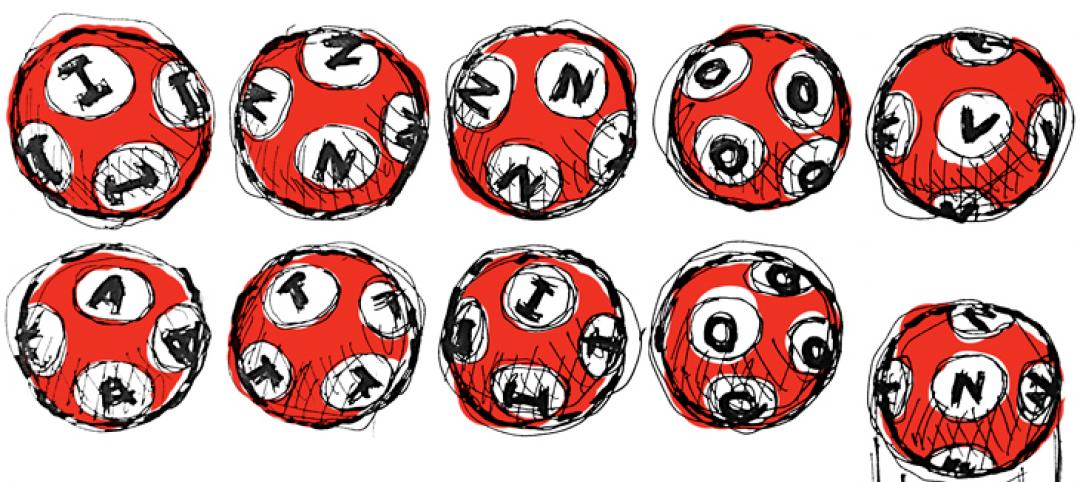Jessica Helfand and Michael Bierut, writers, graphic designers, and co-founders of Design Observer, will join the Yale School of Management as faculty in design this summer.
In 2003, Helfand and Bierut worked with writer Rick Poynor and author and designer William Drenttel to establish Design Observer, a website with news, features, and essays on design, urbanism, innovation and pop culture.
Helfand and Bierut believe that a quality faculty, solid curriculum, and involvement in the 28-school Global Network for Advanced Management will allow the Yale School of Management to introduce and integrate design across its programs.
“At SOM, we will approach it as one might a second language, introducing theory and practice, defining visual grammar, reframing expression, construction, and craft,” Helfand and Bierut wrote on Design Observer. “Can we move beyond the clichés of whiteboards and Magic Markers, away from Post-It notes and buzzwords, and past the overused promises of ‘design thinking’ to define new ways of exploring the value that design can bring to business—and to a larger world? We think so—and SOM does, too.”
Helfand graduated from Yale with Master of Fine Arts and has taught at the university since 1994. She has written books on subjects like graphic designer Paul Rand and the information wheel. Her book on scrapbooks, titled Scrapbooks: An American History, was named the best visual book of 2008 by The New York Times.
Bierut, a partner with Pentagram, the world’s largest independent design consultancy, is a Senior Critic in Graphic Design at the Yale School of Art. With Pentagram, he has led identity and branding strategies for companies like Benetton, Verizon, and the New York Jets, and his work has been added to permanent collections at New York City’s Museum of Modern Art (MoMA) and the Library of Congress in Washington, D.C.
Related Stories
Sports and Recreational Facilities | Mar 11, 2015
Foster + Partners wins bid for 2022 World Cup centerpiece stadium in Qatar
Norman Foster described the design as “an exciting step forward in stadium design—it will be the first to break the mold of the free-standing suburban concept, and instead anticipates the grid of this future city.”
Architects | Mar 10, 2015
German architect Frei Otto named 2015 Pritzker Architecture Prize laureate
The news comes a day after the visionary architect, 89, died in his native Germany.
Modular Building | Mar 10, 2015
Must see: 57-story modular skyscraper was completed in 19 days
After erecting the mega prefab tower in Changsha, China, modular builder BSB stated, “three floors in a day is China’s new normal.”
Sponsored | Metals | Mar 10, 2015
Metal Building Systems: A Rising Star in the Market
A new report by the Metal Building Manufacturer's Association explains the entity's efforts in refining and extending metal building systems as a construction choice.
Retail Centers | Mar 10, 2015
Retrofit projects give dying malls new purpose
Approximately one-third of the country’s 1,200 enclosed malls are dead or dying. The good news is that a sizable portion of that building stock is being repurposed.
Retail Centers | Mar 10, 2015
Orlando's Skyscraper to be world's tallest roller coaster
The Skyscraper is expected to begin construction later this year, and open in 2016. It will stand at 570 feet.
Museums | Mar 9, 2015
Architecture based on astronomy principles for new planetarium in Shanghai
The ancient Chinese civilization left some of the earliest records of humans studying the stars and skies. To exhibit this long history, a new planetarium and astronomy museum is planned for construction in Shanghai.
Architects | Mar 9, 2015
Study explores why high ceilings are popular
High ceilings give us a sense of freedom, new research finds
Cultural Facilities | Mar 9, 2015
London council nixes plans to rebuild the Crystal Palace
Plans for the new Crystal Palace Park were scrapped when the city and the project's developer could come to an agreement before the 16-month exclusivity contract expired.
Office Buildings | Mar 7, 2015
Chance encounters in workplace design: The winning ticket to the innovation lottery?
The logic behind the push to cultivate chance encounters supposes that innovation is akin to a lottery. But do chance encounters reliably and consistently yield anything of substance?
















